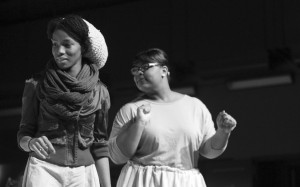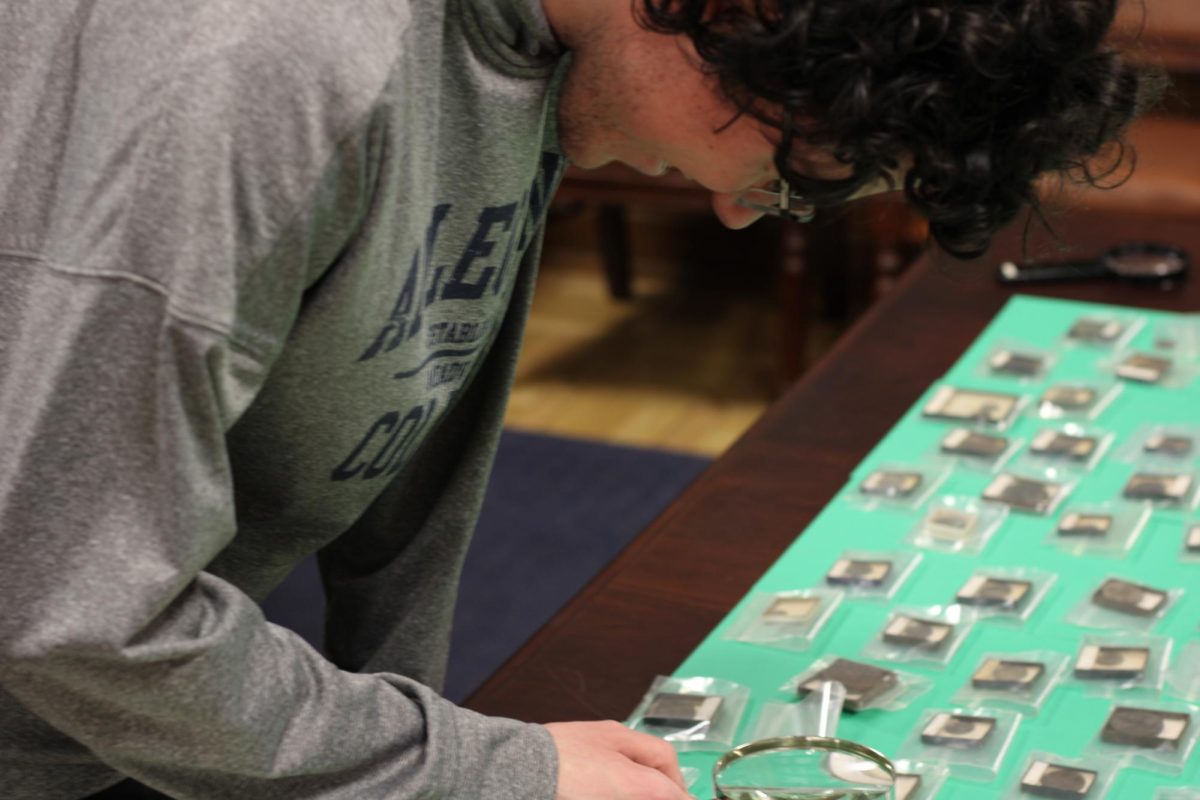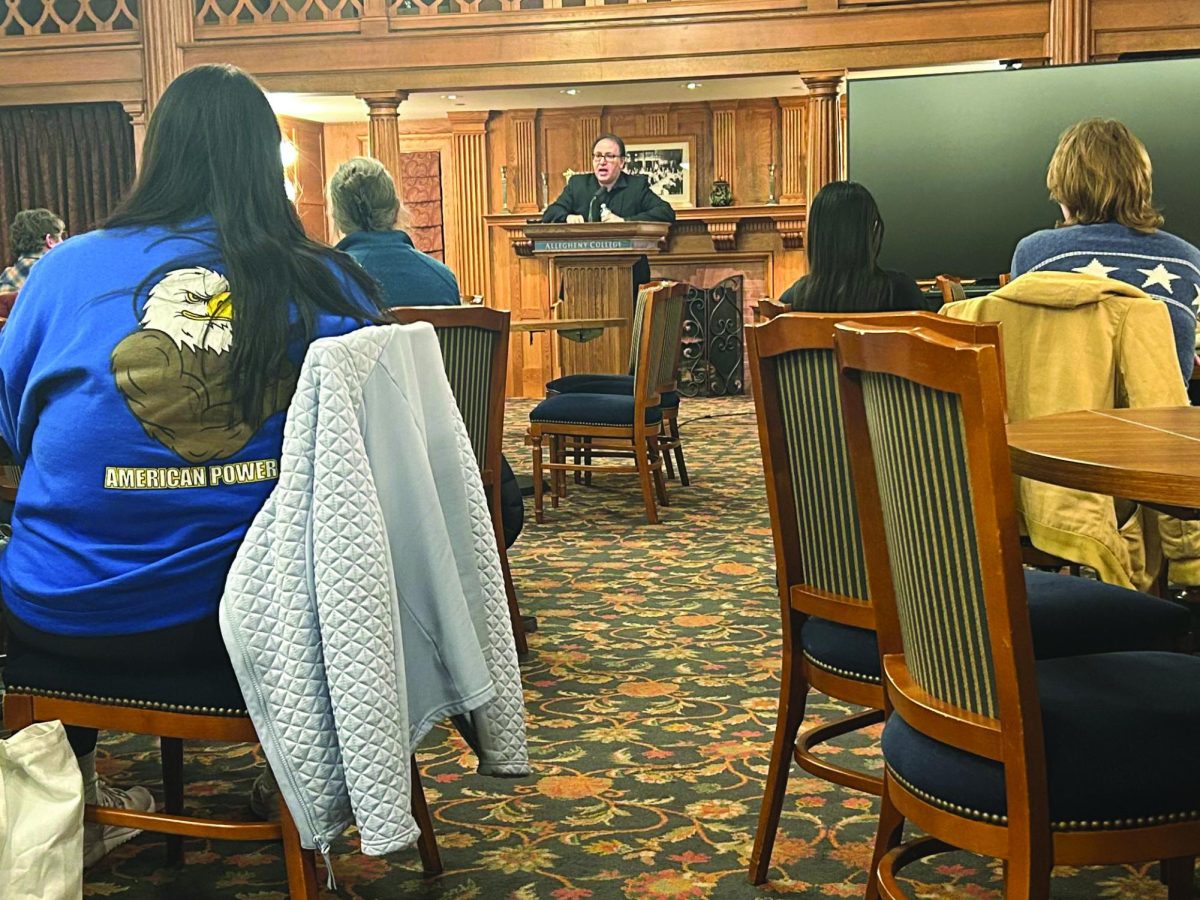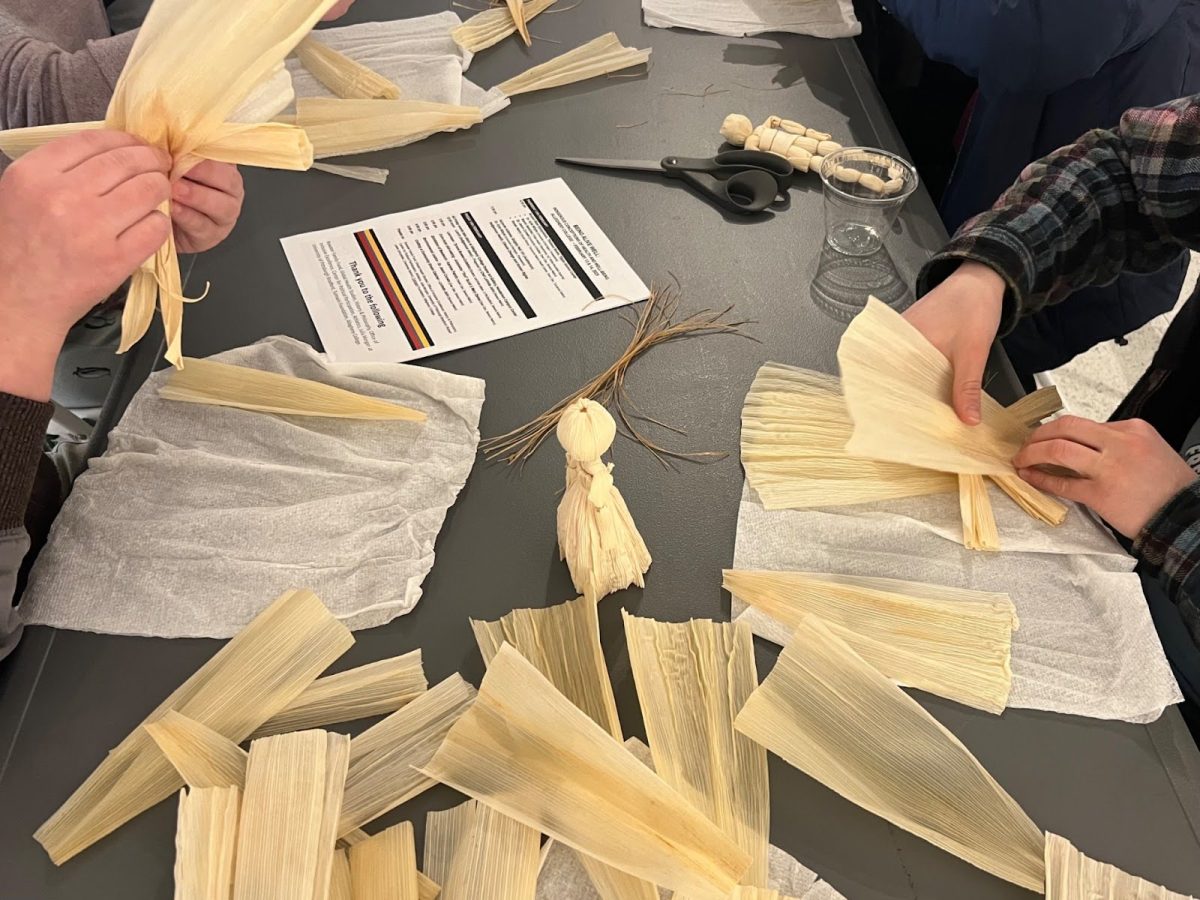By HEATHER BOSAU
Contributing Writer
For those of you who were able to see Allegheny College Playshop Theater’s production of Wedding Band, I hope you have begun to recover from the emotional tumult of the experience. For those of you who missed it, you missed a fantastic, thought-provoking performance, but you saved yourself from being crushed by the horrible reality that is our nation’s history.
On his role as the Bellman, Troy Dinga said, “I will say, I’ve never had to play a character that was this despicable and/or this utterly detestable.
That being said, there was a strange sort of enjoyment for me in playing a character that is so far out of my comfort zone, since then I actually had to be a “proper” actor in order to fit the role. It gave me a far different perspective on the situations depicted in the show, and one in which I found myself far more comprehending of the terrible pressures and oppressions faced in those early years of the 20th century.”
Wedding Band follows the end moments of a relationship between a black woman, Julia Augustine, played by Maya Jones, and a white man, Herman, played by Austin R. Rock, in World War I- era South Carolina, where such relationships were not only frowned upon, but illegal.
The cast of Wedding Band captured the racial tensions of the time with a commendable intensity. Such vile racism could not have been easy to portray, but doing so was necessary for the message of the play to be fully developed and appreciated: the effects of racism were indescribably tragic and irreparably damaged people on either side of the issue.
While the premise of the play is certainly heart-wrenching, the cast also managed to interject enough levity that, though often destroyed after only a few moments by the inherent racism of the times, gave the audience a few moments relief from the agonizing depiction of oppression and heartbreak.
Maya Jones stole the show both with her acting as well as her singing. Her voice was haunting as she sang with a tinge of heartbreak that impeccably evoked the atmosphere of the times. The closing scene of her responding to the shadowed chorus behind her as she held her dead lover in her arms is an unforgettable moment that is worthy of praise.
Lauryn Reiff, appearing as Herman’s mother, also deserves recognition for her portrayal of such a despicable character. The character she played was so dynamic — an ailing, loveless, lonely woman, and a raging bigot. She simultaneously demanded sympathy while also inspiring repulsion. Everyone can sympathize with wanting the best for one’s family, but aligning such sympathy with such horrifying intolerance is difficult, if not impossible.
Perhaps the only issue in the play, and a slight one at that, was the occasional tendency for overacting. There were brief moments as the plot continued in which one character or another would slip into an excessive southern drawl, or be just a bit too overzealous. However, these moments occurred in passing and did not detract at all from the overall effect of the performance.
Every single actor and actress should be proud of his or her performance in Wedding Band. Asha A. Alexander, Troy Dinga, Alicia Foster, Duane Horton, Maya Jones, Mary Lyon, Christine McGrath, Autumn Parker, Imani Prince, Lauryn Reiff and Austin R. Rock managed to put on a performance that addressed one of the darkest moments in our nation’s history, and they did so with devastating accuracy and skill.







